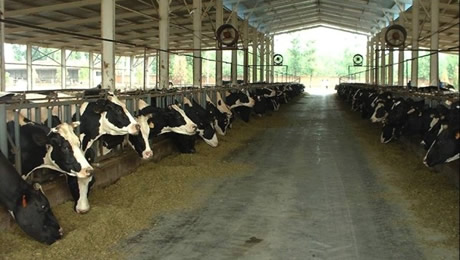
Carbon Trust and Dairy UK announce search for new energy efficient processes
Up to £500,000 in co-funding is being offered to dairy producers, equipment suppliers and technology providers by the Carbon Trust in an industry challenge to develop new energy efficient processes.
The organisation, in partnership with Dairy UK, is inviting consortia to submit proposals to deploy less energy hungry and lower carbon technologies for clean-in-place (CIP) and homogenisation.
The invitation comes as part of the Carbon Trust’s Industrial Energy Efficiency Accelerator (IEEA): a £15m programme that aims to generate a step change in reducing energy use and carbon emissions in British industry.
An initial phase to monitor energy use at dairy production sites has already taken place in collaboration with Robert Wiseman Dairies, Arla, Dairy Crest, BV Dairy, and Glanbia Cheese.
As a result, CIP and homogenisation have been identified as two key processes where the demonstration and deployment of new technologies could significantly reduce energy use, operating costs and carbon emissions.
"Carbon emissions from clean-in-place in dairy are up to 46,000 tonnes of CO2 per annum and could account for as much as 5% of the sector’s total emissions. Similarly, homogenisation is a very energy intensive process where alternatives could bring real cost and carbon savings,’ said Al-Karim Govindji, Technology Acceleration Manager at the Carbon Trust.
"The IEEA is designed to catalyse change by demonstrating new, lower-carbon technical solutions that can then be replicated widely across the dairy sector."
Dairy companies and suppliers of technology and equipment are being invited to form consortia to research and demonstrate new energy efficient technologies in both CIP and homogenisation.
The Carbon Trust will provide up to £500,000 per project to fund a maximum of 60% of project costs, depending on State Aid rules for the project type and size of company, as well as value for money considerations.
"Novel forms of clean-in-place including ice pigging and whirlwind pigging, which reduce the temperature, water and heat required and have the potential to dramatically reduce energy consumption in the dairy sector," said Al-Karim Govindji.
"Ultrasonic homogenisation and more energy efficient designs for homogeniser heads also have great potential. We look forward to exploring the proposals from industry players and working collaboratively to trial new technologies and build a business case."
Fergus McReynolds of Dairy UK said:
"Dairy companies have been committed to improving the energy efficiency of milk processing for many years. Enormous improvements have been achieved over the last ten years in particular. This project represents the opportunity to explore novel technologies, which have the potential to improve further the industry’s performance in this important area and achieve the targets to which the sector has committed in the Milk Roadmap."
Ann Lovering, Group Environmental Manager, Dairy Crest, said:
"Through participation in the IEEA we are keen to learn of emerging and future technologies with potential to reduce our environmental impacts and help achieve our carbon reduction targets. Carbon Trust assistance will aid in acceleration of trialling and funding of technologies which may not otherwise be currently viable."
Roger Williams, Environmental Manager, Glanbia Cheese, said:
"The combination of working with Dairy UK and the Carbon Trust with the new technology and funding available, is a vital part of driving forward our energy saving projects."
The call for proposals is open from 21st September 2010 to 22nd November 2010. The Carbon Trust is encouraging all interested parties to attend a seminar at which the programme and application process will be explained in detail. The seminar will take place in central London on 21 September. Further information can be found at www.carbontrust.co.uk/ieea or by emailing ieea@carbontrust.co.uk.
